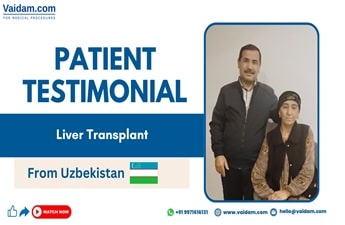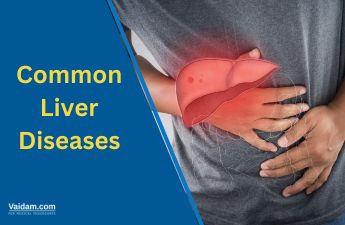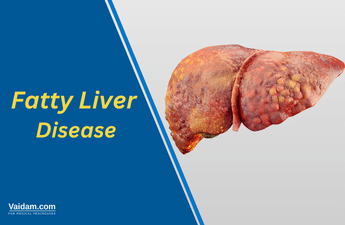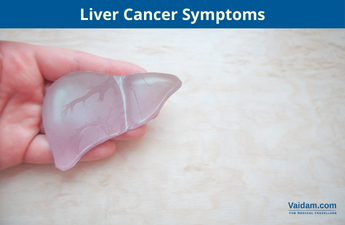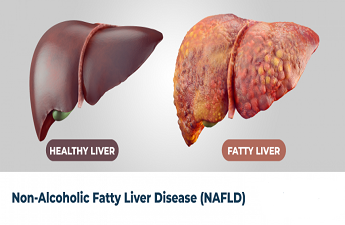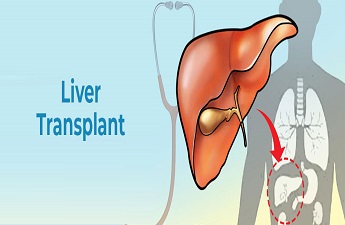
The liver is responsible for food digestion, energy storage, and removal of toxic substances from the body. If any abnormality is found in the liver's functions, it is essential to do the Liver Function Test or LFT to find the exact cause behind the problem.
The Liver Function Test helps the doctor in analyzing the number of proteins, enzymes, and certain other substances such as:
- Total protein
- Amount of bilirubin (Bilirubin is a part of bile juices secreted by the liver when the red blood cells break down)
- Prothrombin time (the time taken for the blood to clot)
- Liver enzymes such as ALT (alanine transaminase), AST (aspartate transaminase), ALP (alkaline phosphatase), AND GGT (gamma-glutamyl transpeptidase)
- Albumin (another form of protein)
Get in Touch with Medical Experts
What is the LFT Test Price in India?
The cost of the LFT test in India is approximately Rs.350 to Rs.1500.
Why is the LFT done?

LFT can be recommended for several purposes that, include:
- Liver infections such as Hepatitis A, Hepatitis C, etc.
- To analyze the extent of a chronic illness such as alcoholic hepatitis
- To monitor the effectiveness of a particular treatment
- To evaluate the side effect of certain medication
- To know the stage and the extent of a certain disease
- To know the reason behind the symptoms like dark urine, light-colored stool, inability to eat, vomiting, abdominal swelling, etc.
You may also want to know about the best liver doctors in India.
How Many Tests are there in LFT?
These tests evaluate the general condition of your liver. They typically examine various substances in a single blood sample, which may consist of:
- Albumin is a protein made in the liver.
- The total protein test measures the total amount of protein in the blood.
- The liver produces bilirubin as a byproduct.
- LD, an enzyme present in almost all cells of the body, is released into the bloodstream due to injury or disease-related cell damage.
- ALT (alanine transaminase), ALP (alkaline phosphatase), AST (aspartate aminotransferase), and gamma-glutamyl transferase (GGT) are different enzymes made by the liver.
- Prothrombin time (PT) is a protein involved in blood clotting.
What Does Each Component of LFT Indicate About Liver Health?
- Alanine Transaminase test (ALT) - ALT is used to metabolize protein in the body to produce energy for the liver cells. Any liver damage can lead to increased ALT in the bloodstream, therefore causing an increase in ALT levels. Further evaluation is suggested if the ALT levels are more than 25 IU/L in women and 33 IU/L in men.
- Aspartate aminotransferase (AST), is found in many body parts like the heart, liver, muscles, etc. It is examined as an additional measure to ALT to analyze liver-related disorders. High levels of AST indicate some damage to the liver or muscles in the body.
- Alkaline phosphatase (ALP) is an enzyme found in the bones, bile ducts, and liver. It is usually recommended in addition to some other tests. High levels of ALP indicate liver inflammation, bony disorders, or obstruction in the bile ducts.
- Albumin is the most important protein made in the liver. Low albumin levels may indicate kidney disease, infection, inflammation, and lack of nutrition. Albumin has the following functions to perform such as:
- Inhibiting the fluid to leaking from the blood vessels
- Nourishment of the tissues
- Transportation of hormones, vitamins, and other substances throughout the body
- Bilirubin is produced by red blood cells and goes through the liver before being eliminated from the body. High levels of bilirubin may indicate damage to the liver.
- Gamma-glutamyltransferase (GGT) is an enzyme present in the blood. Higher levels indicate damage to the liver or bile duct. Normal levels are 9-48 units/liter.
- L-lactate dehydrogenase enzyme is found in the liver.
- The liver is responsible for the secretion of enzymes that help clot blood. Prothrombin time is the time taken by the body to clot the body. If PT is delayed, it indicates damage to the liver.
What is a Normal LFT Level?
The normal ranges can differ depending on gender, body size, and the specific laboratory conducting the tests. On average, normal ranges are:
- Aspartate transaminase (AST): 0-35 IU/L
- Alanine transaminase (ALT): 0-45 IU/L
- Bilirubin: 2-17 micromoles/L
- Gamma-glutamyltransferase (GGT): 0-30 IU/L
- Alkaline phosphatase (ALP): 30-120 IU/L
- Prothrombin time (PT): 10.9 to 12.5 seconds
- Total proteins: 3 to 8.0 g/dL
- Albumin: 40 to 60 g/L
What Happens When LFT is High?
If you have elevated liver enzymes, it may mean that your liver cells are inflamed or damaged. When liver cells are inflamed or injured, they release more chemicals, including liver enzymes, into your bloodstream, causing higher levels of liver enzymes to appear in blood tests.
Clinical Significance of LFTs
The levels of LFTs can point to the differentials. Many disease processes have very distinct abnormalities in the liver enzymes. Further investigation is warranted if repeated tests confirm abnormality.
- Alcohol: In patients with alcohol use disorder, AST to ALT ratio is generally at least 2:1, showing a high level of AST activity in alcoholic liver disease. Elevated GGT, along with AST, also suggests alcohol abuse. GGT should not be used alone since it is not specific to alcohol.
- Medications: Several medications are known to cause liver damage. Many of these are commonly used in daily practice, including but not limited to NSAIDs, antibiotics, statins, anti-seizure drugs, and drugs for tuberculosis treatment. Methotrexate, commonly used for rheumatoid arthritis and other inflammatory arthritis, can cause a mild transient elevation in LFTs and can also cause permanent liver damage in liver fibrosis and cirrhosis, especially with higher cumulative doses. Herbal medications can also cause an elevation in LFTs.
- Viral Hepatitis: Viral illnesses commonly cause hepatitis and elevation in LFTs.
- Autoimmune Hepatitis: The patient with Autoimmune hepatitis usually presents with high LFTs without apparent cause.
- Hepatic Steatosis and Nonalcoholic Steatohepatitis: The typical patient with this disease is overweight, has type II diabetes, dyslipidemia, and no evidence of clinically significant alcohol use. The AST and ALT are usually both elevated with a ratio of 1:1, with other liver function tests being normal.
- Hemochromatosis is abnormal iron accumulation in parenchymal organs, leading to organ toxicity. Clinical manifestations include diabetes, liver disease, and cutaneous hyperpigmentation. A raised serum ferritin level usually raises concerns for possible hemochromatosis, but a greater than 45% transferrin saturation is more reliable. HFE mutations (C282Y, H63D) are pivotal for diagnosing hereditary hemochromatosis. Secondary hemochromatosis can also be seen due to increased iron intake.
- Wilson Disease: A low serum ceruloplasmin level is seen in the majority (up to 85%) of the cases. The 24-hour urinary copper excretion test is usually abnormal, with more than 100 micrograms of copper excretion in the urine indicating Wilson's disease. A liver biopsy remains the confirmatory test.
- Alpha-1 Antitrypsin Deficiency (AATD): Those with AATD are also predisposed to obstructive pulmonary disease and liver disease (e.g., liver cirrhosis and hepatocellular carcinoma in children and adults). The primary manifestation of AATD is early-onset panacinar emphysema.
- Celiac Disease: Celiac disease is associated with modest elevations of liver transaminases. The screening should be considered in patients with persistently elevated liver enzymes and consists of tissue transglutaminase IgA and serum IgA level or tissue transglutaminase IgA and anti-deamidated gliadin peptide IgG.
- Thyroid Disorders: Both hyperthyroidism and hypothyroidism have been associated with abnormal liver enzymes, including hepatocellular and cholestatic injury patterns. Screening should be considered in patients with a compatible medical history and consist initially of thyroid stimulating hormone and selective free T4 and free/total T3 testing.
To Conclude
Checking on the health of your liver is easy with a liver function test. Your healthcare provider can use this test to detect liver disease or assess the effects of medication or treatment.
The test only requires a small blood sample but can provide valuable information. Remember that the results may not be enough to make a diagnosis, but they can help guide further steps.












